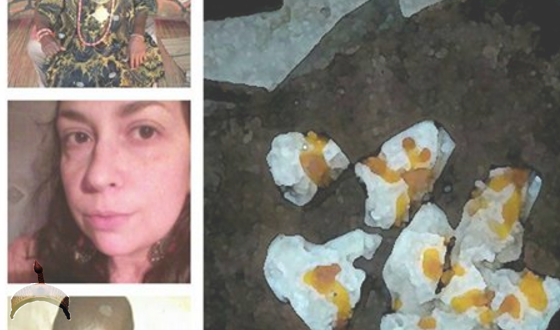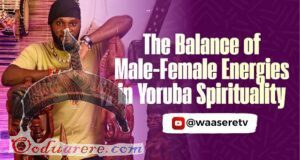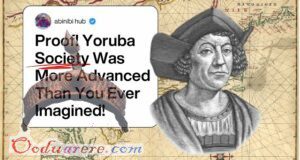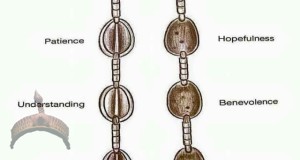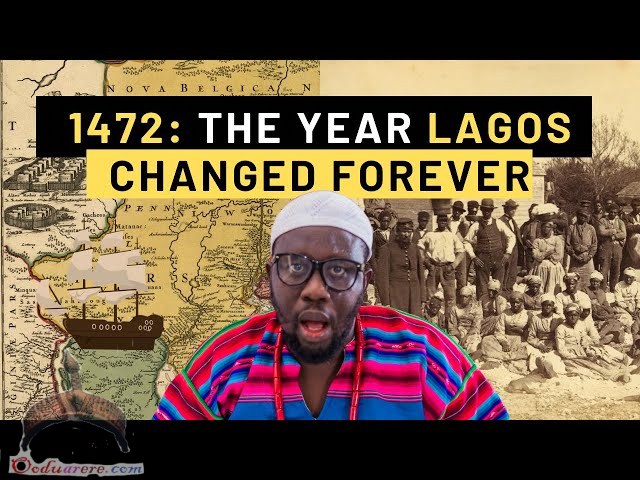By Babalawo Ifaseun, Oluwo prince Ifaleke and Omo awo Ifawumi.
uk1 The Iyami are supernatural women who have been blessed by Eledumare with a great power which can be seen in the Odu Ifa Osetua, where it is written: anyone who makes a plan by excluding from it the ideas of the women, must know that their plan is intended to fail. In the Odu Ifa Osetua is told that man alone can not be complete and that if underestimate the will of Iyami will never achieve their goals. In addition, Iyami (the Great Mothers witches) will not cause harm to man except what man causes himself.
Iyami Osoromaniga are the Great Mothers witches whose power is infinite and therefore useful for any purpose; the work that the Babalawo or the Iyanifa going to play will be classified in colors: Dudu (black) to obtain victory and defeat enemies; Pupa (red), FunFun (White) to obtain blessings, Ayrin (lightblue) for protection, and so on. For each Babalawo and Iyanifa is very important to offer Ipese to Iyami.
In many claim that the initiation in Iyami does not exist or can not be possible… Because, you see, the initiation into Iyami is the most secret initiation of all. Yet there are several ways to initiate in the Iyami Society, through rituals and also by inheritance.
Our initiation lasts three days and is called Imule Agba, a very tough ritual that few can withstand. In conclusion to this initiation ritual, if the person has been able to deal with it then they will be able to meet Iyami.
At this ritual can submit anyone who desires, woman or man, and for different reasons: some in Nigeria do so because they need help, because they have to flee situations of embarrassment or danger, others do it for hereditary issues, sometimes this can be seen through Ifa divination.
In the Ifa Religion it is not mandatory to initiate in Iyami… But when you see with your own eyes the blessings of Iyami it is something that will not make you go back.
We can not go further than that so now we will explain how to Wure to the Iyami without being initiated, waiting perhaps for a future initiation.
The best time for prayer is in the evening, at midnight: the Iyami eat willingly Okete, a big rat that you can find in Nigeria. Iyami accept the prayers of any kind, for any help. The best offer is made by the Ipese which, contrary to Ebo (which is an offer made to remove the negativity as recommended in the Odu Ifa), is a gift, a gift to the Great Mothers witches to honor them and to ask for advice and help. The original Ipese is done only by Babalawo or Iyanifa and includes food and other materials over the Okete.
With Okete the Iyami will be sufficiently satisfied and will listen to your prayer.
In the Odu Ifa Osa Meji:
Ẹ̀lá wẹ̀rẹ́ awo òwú lódífáfún òwú
Nijọ owo n bẹ laarin ẹlẹyẹ
ẹbọ ní woń ní kọwa se
ọ́gbẹ́’bọ órúbọ, ógbérù ótèrù
Àwon akítípá lawo ilé
Gbòngbò yakata lawo òde
Awon lódífáfún Ọ̀rúnmìlà
Níjọ́ ogun ẹlẹyẹ jàdé
ẹbọ ni wón ni ki baba ówáse
baba gbẹ́’bọ órúbọ, ógbérù ótèrù
àda Òrìsà ni eheè, àdá sekete
Ọwọ mi o, àdá Òrìsà ni ehèé
Ẹ̀lÀ WẸ̀RẸ́ the ÒWÚ spirit
Ifa Divination was made for ÒWÚ
In the day in which ÒWÚ was disturbed by the earth’s people
He was advised to offer sacrifice
He offered it
ALÁKÍTÍPÁ the spirit of the house
GBÒNGBÒ YÀKÀTÀ the spirit of the outside
They made Ifá Divination for Ọ̀rúnmìlà
On the day that began the war of the witches.
He was advised to offer the sacrifice
Ọ̀RÚNMÌLÀ did it
This is the cutlass of ÒRÌSÀLA, the small cutlass
Hold my hand, this is the cutlass of Òrìsálá
Now we are going to explain this verse of the Odu Ifa Osa Meji, as written in the book The Unabridged Book of Taboo, by Prince Babalola Ifaleke (waiting to be published in English, Italian and Portuguese).
Owu visited Orunmila to ask an Ifá divination because of his people were not defeated by the witches, who were killing his children. Orunmila said to Owu to offer the sacrifice. He also said that after the sacrifice he should go to Òrìsálá to ask for further explanations by offering snails and ten yards of white cloth, and do not eat dog meat as dog meat is prohibited to Òrìsálá.
Owu did so, he showed up with snails and ten yards of cloth to Òrìsálá and he asked him the reason for such offers.
Owu replied that his children were killed by the earth’s people and that he was the only one able to protect him from the witches. Òrìsálá immediately called his son, Salako, and sent him to announce to everyone that no witch, big or small it might be, would never killed the Owu people: whatever witch disobeyed, they would have had no peace.
When witches heard the words of Òrìsálá they became furious and sent their son to tell everyone that:
Olórítoké river of witches
Olórìtokà river of witches
Òrìsálá can not fetch from them the water he uses for his beautification ritual.
Òrìsálá used the waters of those rivers every five days for the beautification sacrifice and when he learned that witches prevented him to fetch the water, he remained very surprised but, on the other hand, he had spoken to his will, and so the witches did.
It was that way that the hunchback, the albino and the lame were transformed into other beings.
Òrìsálá when he learned that those people had been transformed from earthly mothers he became very angry and decided to go to the river to fight against witches.
He arrived at the river and unleashed a war against witches and used his axe to cut off their arms and legs and so he defeated them.
The axe used by the god against witches is spiritually called ÀDÁSÀ or ÀDÁÒRÌSÀ.
The day after the battle the witches from all over the world made their way to Òrìsálá home singing various songs, such as:
If we see Òrìsálá we will swallow him
If we will see Salako he will be swallowed
If we see Òrìsàwálé we will kill him
After Òrìsálá heard this song he went to the place where he kept the axe he had used to defeat the witches, but when he discovered that their people was more numerous than he could deal with, he decided to take his children and leave by the other side of the house.
He came to the house of Egungun. They asked him what it was chasing and Òrìsálá explained everything. He had not finished yet that he heard the song of the witches but did not take it seriously. He sent four people to get the water to make soap; the first to go was the hunchback, then the albino, the third was the dwarf, and finally the lame.
These four slaves were sent by Òrìsálá to fetch water; when Albino came to the river the witches tore the container and broke it on his head: that was how the albino became albino, because the witches broke the pumpkin on his head.
The same thing happened to the hunchback, who saw breaking on his head the container for the water so that it formed another bump on the side and one in front and one behind.
That’s why we pay tribute to these four people especially when we want to take a ritual bath for Iyawo Ifa to the river, because they are divinities.
Song:
I pay tribute to the hunchback
I pay tribute to the lame
I pay tribute to the albino
House of gods
A salute to the dwarf
Before we take a bath at the river
Continuing on with the verse:
If we see Ọjẹdòkun we devour him
If we run into Ọjẹwálé we will swallow him
And if Ọjẹbùnmi will be seen we will turn him upside down
So it was that the witches promised to swallow all the sons of Egungun.
At that point Òrìsálá and Egungun went to Sango to inform him about their experience with the witches. Immediately he heard the song of the witches turned to the children of Sango.
Wasting no more time, they all went to Orunmila because he was the only Òrìsàmole which could be able to figure out what to do with the witches. Before they came Orunmila had consulted Ifa for advice about the attack of the witches; he had to cook white pounded beans and spread them around the house to protect themselves from the earth’s people. Òrìsálá, when he came to the house of Orunmila, asked him what could do the chief of the priests, and when he began to explain he heard the voice of the witches singing:
If we see Amosun he will be swallowed
If we meet Amore he will be devoured
And the same will happen to Falade and Opelade
Orunmila immediately offered the sacrifice to prevent them from reaching his house and thereby defeated them.
It was because of these facts that some were deformed, others died, and those who remained begged forgiveness and obtained it by Orunmila. Òrìsálá, to thank him, gave him the axe called ÀDÁSÀ or ÀDÁÒRÌSÀ that Babalawo put in front of Ifa.
Carefully observing the direction of this Odu Ifa we understand that Owu is Òrìsálá/Obatala. The children of this Odu Ifa must stay away from Obatala taboo, such as dog meat, palm wine, blacks clothes.
Thanks for reading my article, you can also our website ifaniwura.com
Any enquiry, on whatsapp +2348109611988 or email babalolagbemileke@gmail.com
 Ọmọ Oòduà Naija Gist | News From Nigeria | Entertainment gist Nigeria|Networking|News.. Visit for Nigeria breaking news , Nigerian Movies , Naija music , Jobs In Nigeria , Naija News , Nollywood, Gist and more
Ọmọ Oòduà Naija Gist | News From Nigeria | Entertainment gist Nigeria|Networking|News.. Visit for Nigeria breaking news , Nigerian Movies , Naija music , Jobs In Nigeria , Naija News , Nollywood, Gist and more

